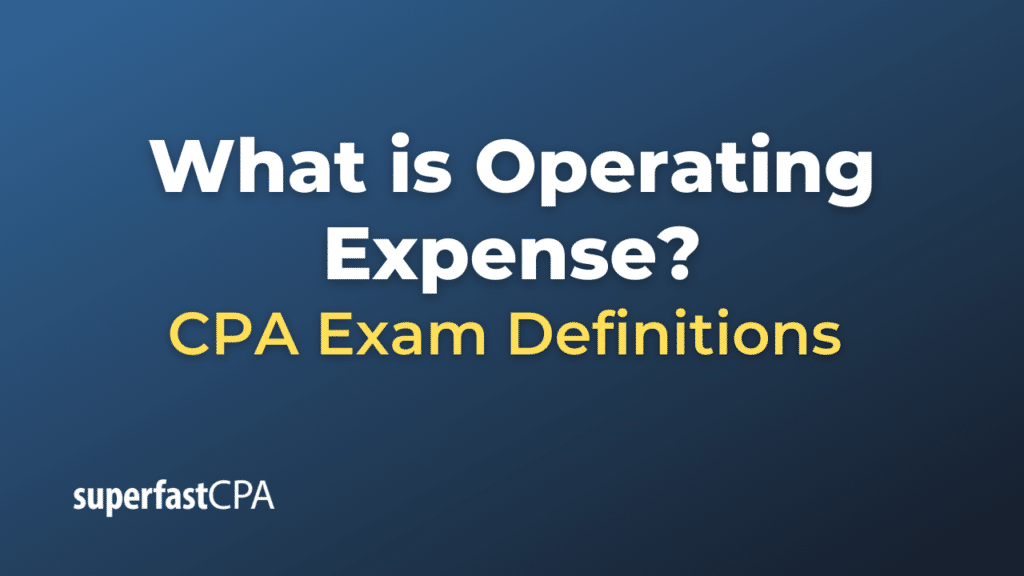Operating Expense
Operating expenses, often abbreviated as OPEX, are the costs associated with running a business’s day-to-day operations. These are the expenses a company incurs while conducting its normal business operations and are necessary and inevitable for most businesses.
Operating expenses can include:
- Rent and utilities: The cost of leasing office space, electricity, internet, and other utility costs for the premises.
- Salaries and wages: The cost of wages and salaries for employees, including benefits and payroll taxes.
- Research and development: Costs related to the research and development of new products or services.
- Sales and marketing: Costs related to advertising, marketing campaigns, sales team salaries, and other sales-related costs.
- Depreciation and amortization: The cost of spreading out the expense of a long-term asset over its useful life (depreciation) or spreading out the expense of an intangible asset over its legal or useful life (amortization).
- Office supplies: The cost of supplies required for daily operation.
- Repairs and maintenance: Costs related to maintaining and repairing company equipment or property.
- Insurance: The premiums paid for various insurance policies the business might have.
It’s important to note that operating expenses are different from “cost of goods sold” (COGS). COGS represents the direct costs of producing the goods or services that a company sells and includes things like raw materials and direct labor costs. Operating expenses, on the other hand, are the costs incurred to run the business itself and would still exist even if no production occurred.
Both operating expenses and COGS are subtracted from a company’s revenue to calculate its operating profit or operating earnings. Lower operating expenses can lead to higher operating profit, assuming revenue and COGS stay the same.
Example of Operating Expense
Let’s provide an example using a hypothetical small business. Let’s say you own a small bookstore called “Book Haven”. Here’s a breakdown of your monthly operating expenses:
- Rent for the bookstore premises: $3,000
- Utilities (electricity, water, internet): $500
- Employee salaries: $5,000
- Marketing expenses (including advertising costs, website maintenance): $1,000
- Office supplies (stationery, cleaning supplies, etc.): $200
- Insurance premiums: $300
So, to calculate your total monthly operating expenses, you would simply add all these expenses together:
Operating Expenses = Rent + Utilities + Salaries + Marketing Expenses + Office Supplies + Insurance
Operating Expenses = $3,000 + $500 + $5,000 + $1,000 + $200 + $300
Therefore,
Operating Expenses = $10,000
This means that Book Haven has $10,000 in operating expenses every month. This is the cost associated with running the bookstore, excluding the cost of the books themselves (which is covered under the cost of goods sold). If Book Haven’s monthly revenue is greater than $10,000 plus the cost of goods sold, the bookstore is making a profit. If not, the bookstore is operating at a loss.












